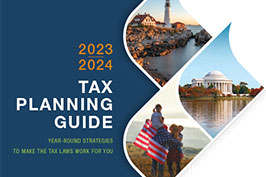Stop giving the IRS Interest-Free loans
In the cycle of yearly tax filings, receiving a big tax refund might feel like hitting a mini jackpot. In reality, these refunds are simply the government returning your own money – money that you overpaid, expecting no interest in return. This means the IRS uses your overpaid taxes throughout the fiscal year, only to return them post-tax filing, without any financial benefit to you. Commonly this interest-free loan to the government is inadvertently costing you money that could be generating interest or invested for potential gains.
More than losing out on interest, however, this is about broader financial management. Smart financial planning means making your money work for you, not the government. Whether through investment avenues, accruing interest in a savings account or reducing debt, these alternatives invariably offer better financial growth or savings compared to a zero-interest loan to the government.
0% interest rates don’t make any sense
From a financial standpoint, the practice of giving the IRS an interest-free loan is illogical. Instead, individuals and businesses should strive for more accurate projections of their annual tax liabilities. The best way to stop giving the IRS interest-free loans is to pay accurate quarterly taxes ensuring you are not inadvertently overpaying throughout the year. The ideal scenario is to balance your payments so accurately that you neither owe a substantial amount at year-end nor receive a large refund, making your money work optimally for you throughout the year, not for the IRS.
Testimonial
Better money management
The strategy of adjusting withholdings or quarterly payments to prevent overpaying taxes aligns with smarter money management practices. Instead of loaning the IRS money at 0% interest these funds could be invested, potentially earning returns or saved for emergencies.
And as you navigate the complexities of tax payments and refunds remember to work with a reputable CPA Firm. These professionals can explain the downside of a big tax refund and guide you towards financial security and growth strategies.
In the end, optimizing your tax strategy not only prevents giving the IRS a free loan but empowers you to take charge of your financial future. By reallocating what would have been an overpayment into productive financial channels you are ensuring your money is working for you throughout the year.
CTA – Your tax planning guide

